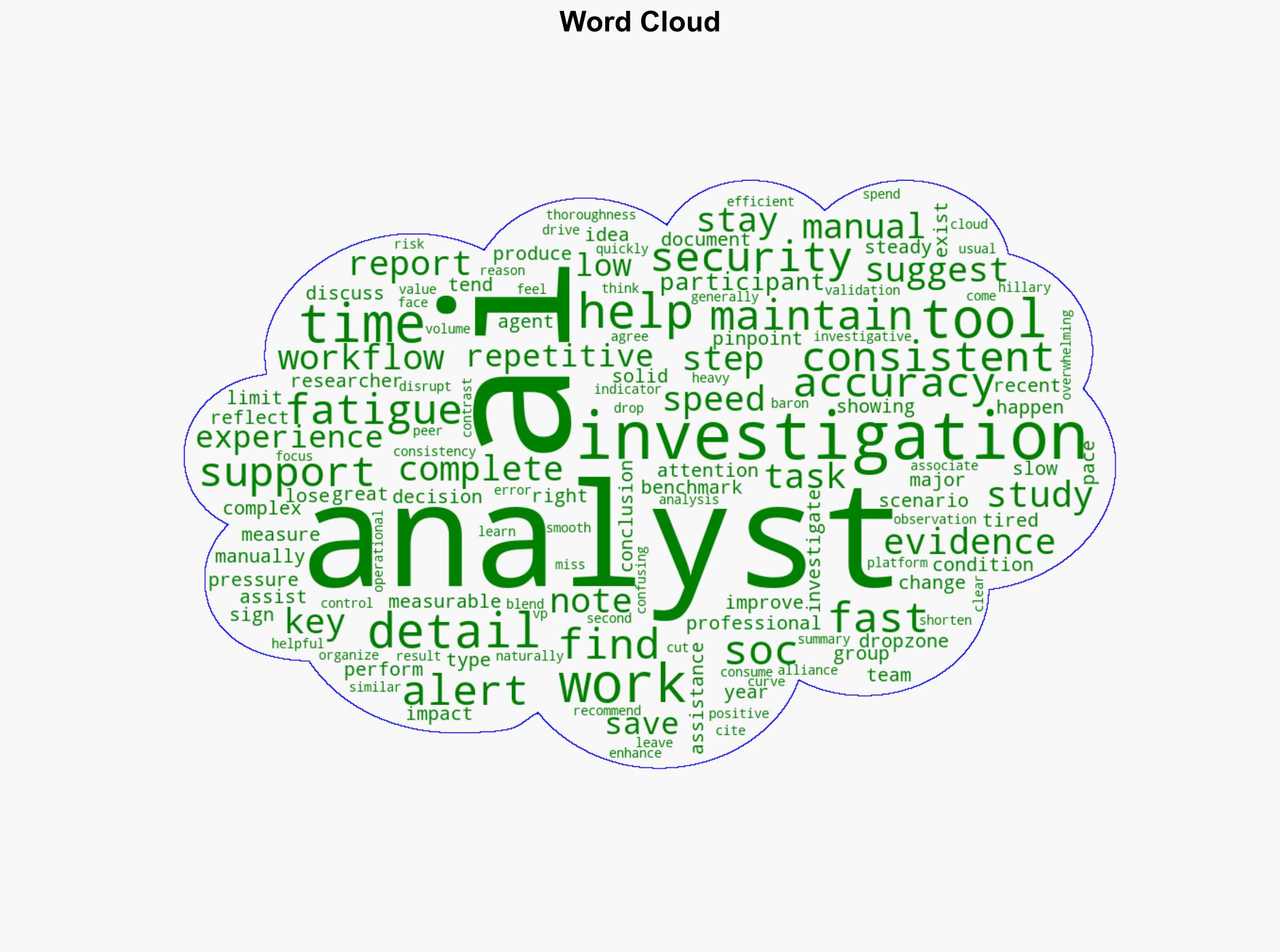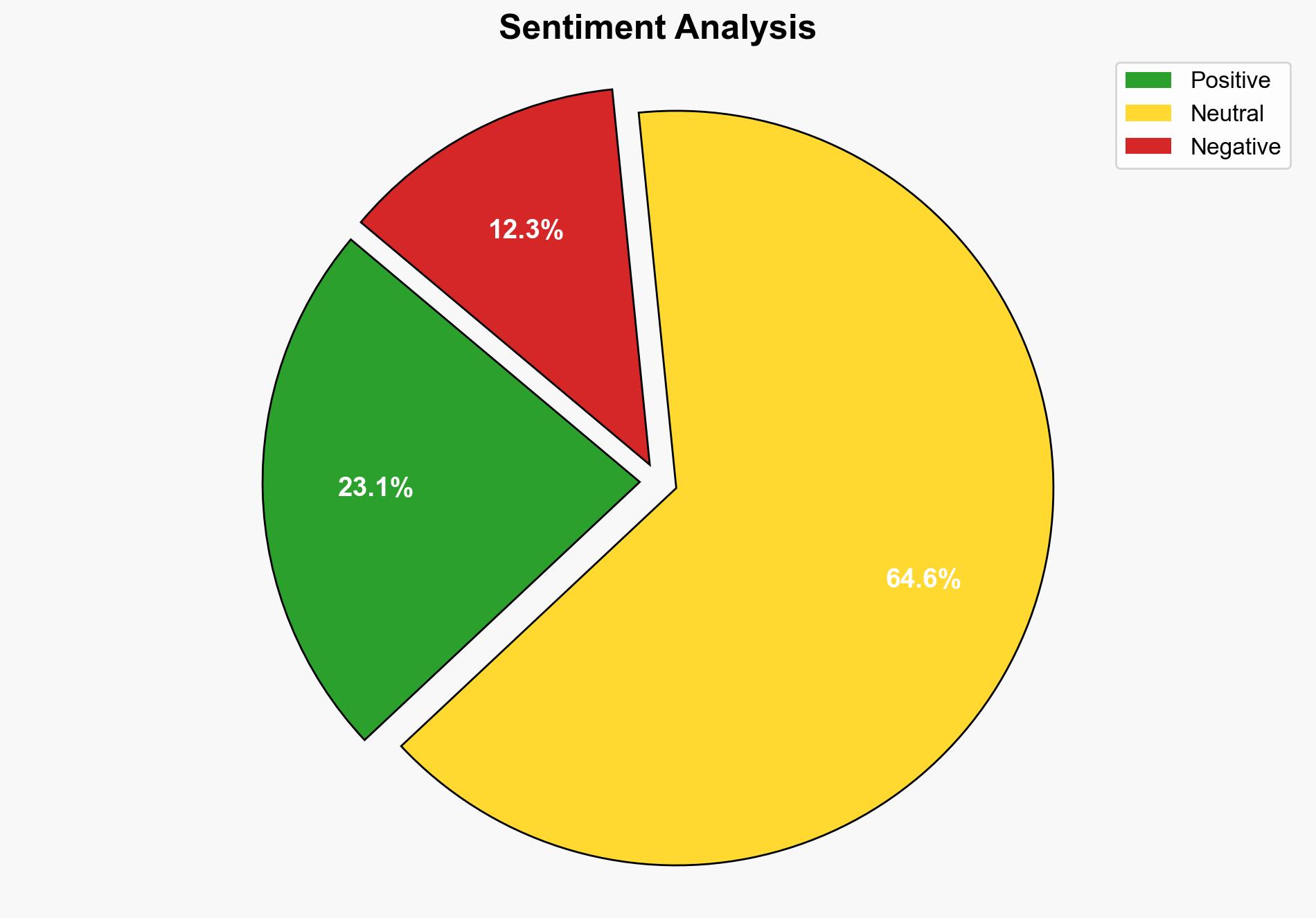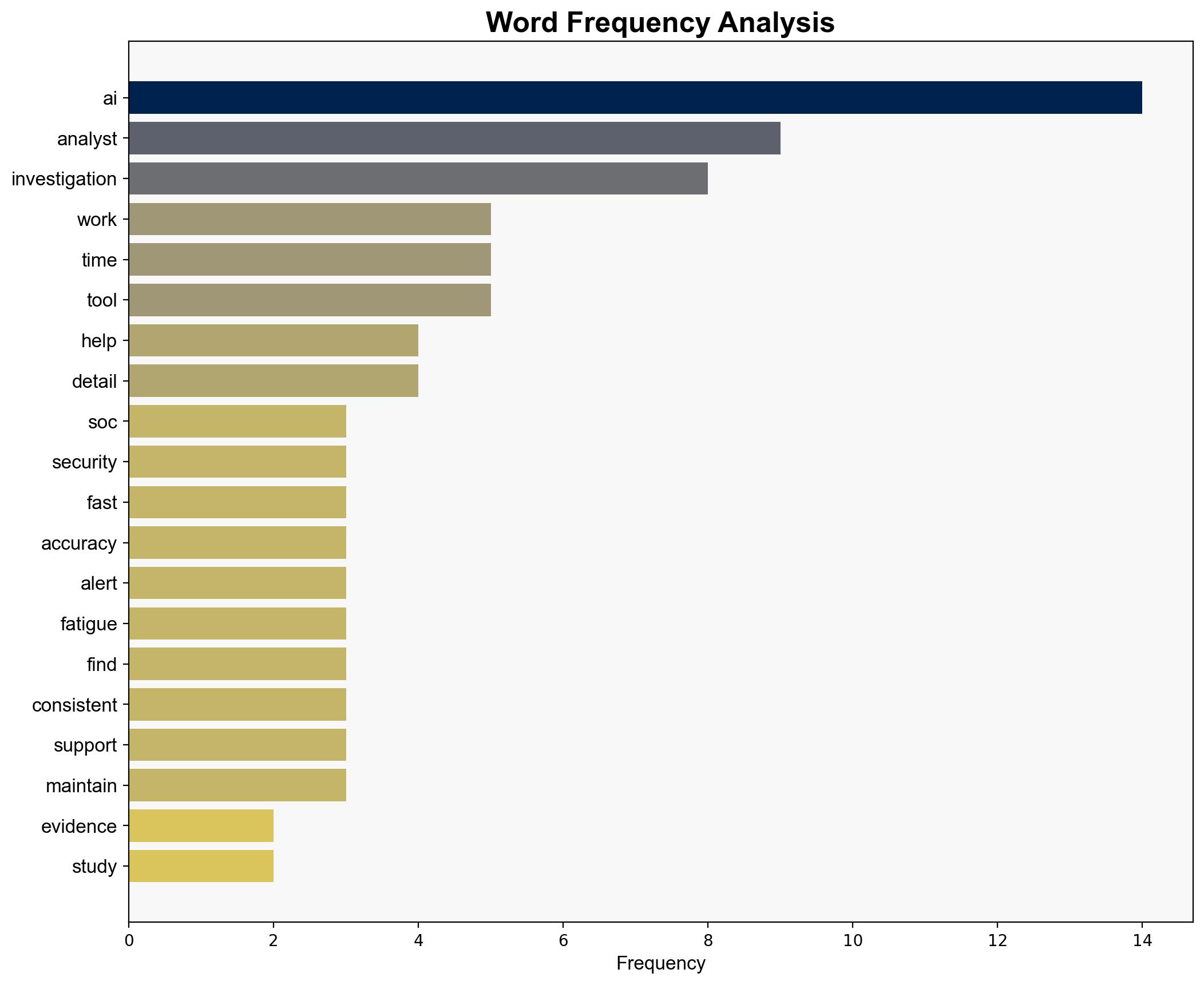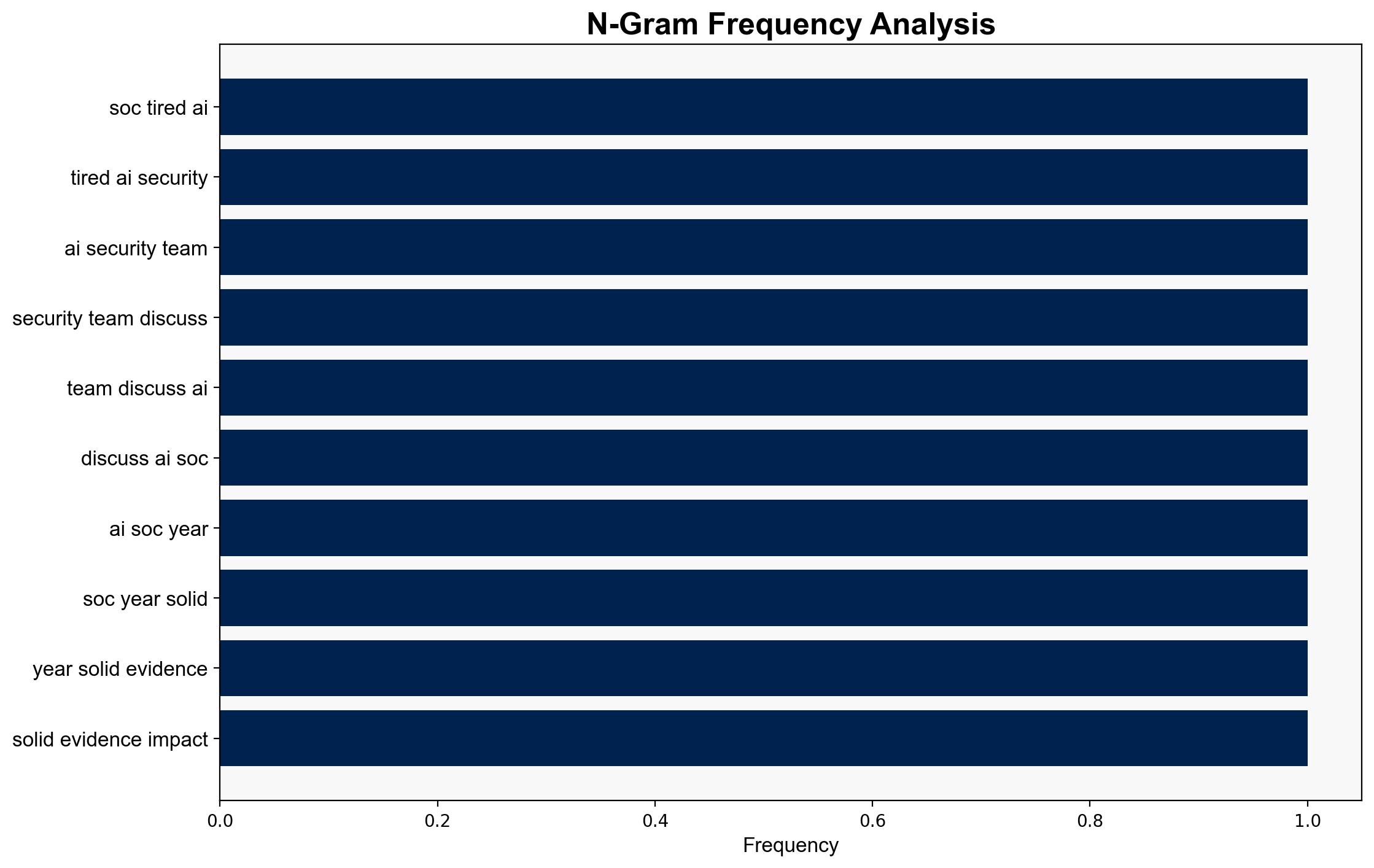Your SOC is tired AI isnt – Help Net Security
Published on: 2025-10-10
Intelligence Report: Your SOC is tired AI isnt – Help Net Security
1. BLUF (Bottom Line Up Front)
The integration of AI into Security Operations Centers (SOCs) appears to enhance efficiency and accuracy, reducing analyst fatigue. The most supported hypothesis is that AI tools significantly improve SOC performance by maintaining analyst focus and reducing errors. Confidence in this assessment is moderate due to potential biases in the data. It is recommended to continue integrating AI tools while addressing user training and interface design to maximize benefits.
2. Competing Hypotheses
1. **Hypothesis A**: AI integration in SOCs significantly improves analyst performance by reducing fatigue and increasing accuracy and speed.
2. **Hypothesis B**: The perceived improvements in SOC performance with AI are overstated, with benefits primarily due to novelty effects and not sustainable long-term.
Using Bayesian Scenario Modeling, Hypothesis A is better supported by the evidence of increased speed and accuracy in investigations and reduced fatigue. However, Hypothesis B cannot be entirely dismissed due to potential biases in self-reported data and the novelty effect.
3. Key Assumptions and Red Flags
– **Assumptions**: It is assumed that the study’s participants accurately reported their experiences and that AI tools were implemented effectively.
– **Red Flags**: The potential for cognitive bias exists, as participants may report positive outcomes due to expectations or pressure. The lack of long-term data raises concerns about sustainability.
– **Inconsistent Data**: The report lacks detailed quantitative metrics on performance improvements and does not address potential negative impacts on workflow integration.
4. Implications and Strategic Risks
The integration of AI in SOCs could lead to a significant shift in cybersecurity operations, potentially reducing human error and increasing response times. However, over-reliance on AI without proper human oversight could lead to missed anomalies or overconfidence in AI-driven conclusions. The economic implications include potential cost savings from increased efficiency, but also the need for investment in AI training and infrastructure.
5. Recommendations and Outlook
- **Mitigate Risks**: Implement comprehensive training programs to ensure analysts are proficient in using AI tools and understand their limitations.
- **Exploit Opportunities**: Continue to integrate AI tools, focusing on improving user interfaces and reducing the learning curve.
- **Scenario Projections**:
- **Best Case**: AI tools become seamlessly integrated, leading to significant improvements in SOC efficiency and effectiveness.
- **Worst Case**: Over-reliance on AI leads to critical oversight and security breaches.
- **Most Likely**: Gradual improvement in SOC performance as AI tools are refined and better integrated into workflows.
6. Key Individuals and Entities
Hillary Baron is mentioned as an associate involved in the study, providing insights into the operational value of AI in SOCs.
7. Thematic Tags
national security threats, cybersecurity, counter-terrorism, regional focus





